A chessboard in Putrajaya, Malaysia, demonstrates Cambodia’s immense diplomatic superiority as a small but dignified and peaceful state in the world.
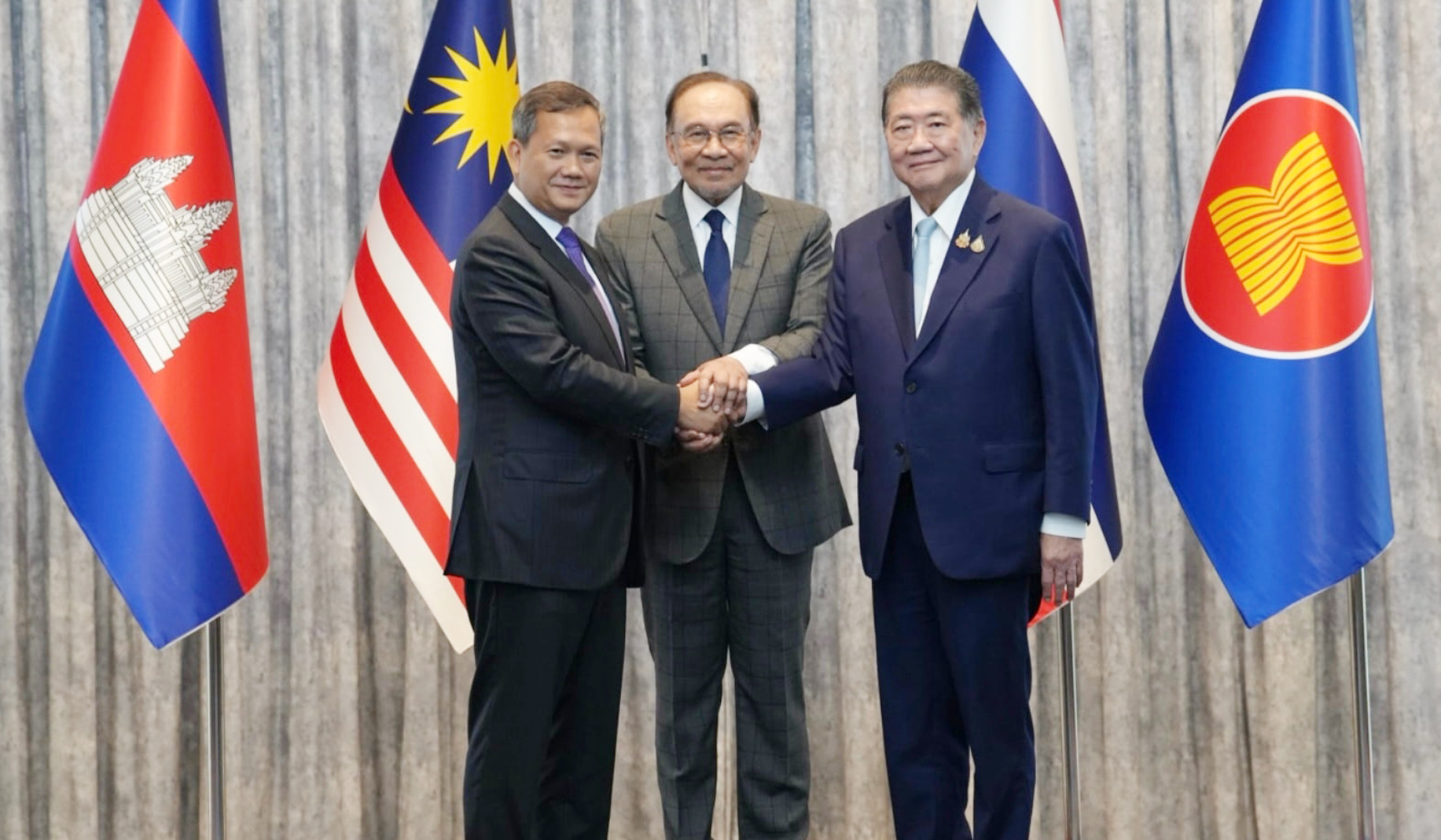
Why dare to claim that Cambodia is demonstrating such diplomatic excellence? The main reason is to drag Thailand into the multilateral mechanism that Cambodia wants, while Thailand, since the beginning, since the tension has been rising, has always demanded and demanded a bilateral mechanism.
Since the border hostilities began, Cambodia has spread a complex diplomatic net through all mechanisms with intelligence. Cambodia started through the regional mechanism with ASEAN as the main one, the international mechanism through the complaint to the United Nations Security Council, and later, the great power mechanism.
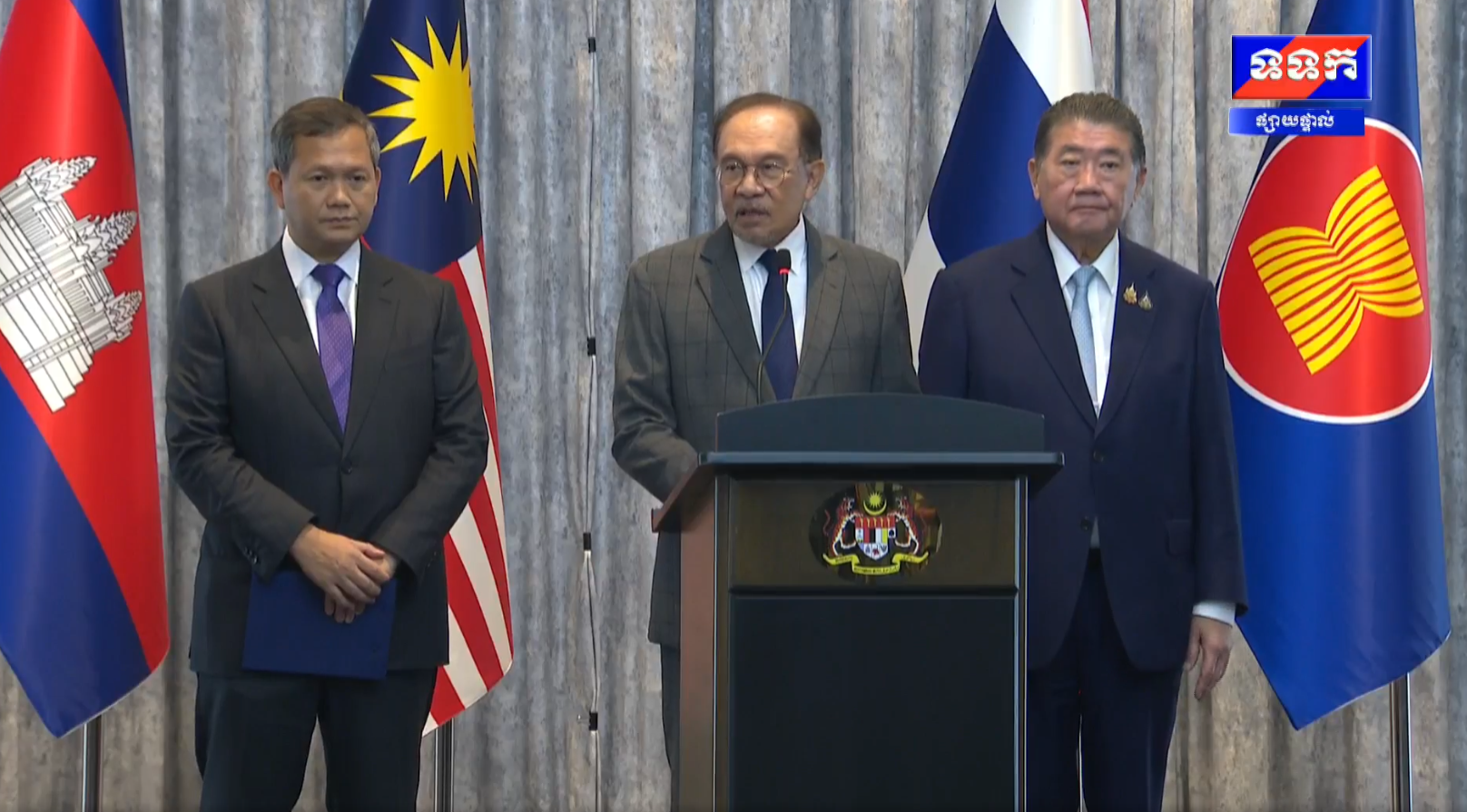
Cambodia has played a game of diplomatic diplomacy to the point of attracting the attention of US President Donald Trump and, through Malaysia, the chair of ASEAN, has attracted the participation of China, while in ASEAN, the US And China still needs a political balance in the era of geopolitical rivalry between the two superpowers. Speaking during a press conference after a special meeting on the issue of the Cambodia-Thailand border shooting on July 28, the King displayed a shrewd diplomatic policy.
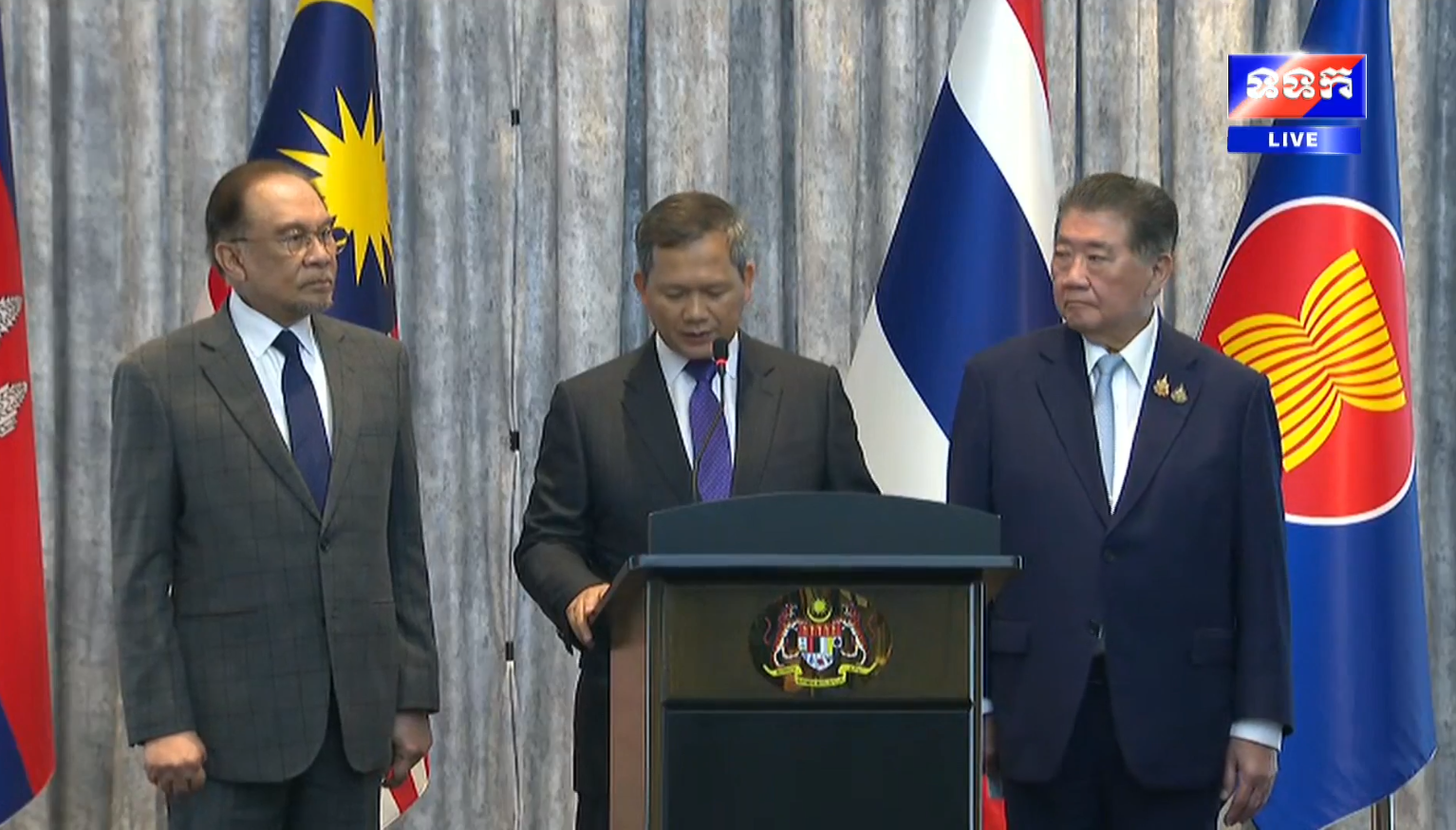
The King said that the results of the meeting that day were very good and hoped that the ceasefire agreement would be able to stop the fighting that has caused the loss of lives. And many injuries, as well as causing many people to flee, about 300,000 people, 140,000 Cambodians, 160,000 Thais.
The President said that Cambodia hopes that the resolution announced by the Malaysian Prime Minister will set the conditions for moving forward and leading to discussions to return to normal relations in the future. The President thanked the Malaysian Prime Minister, the US President, and China for their efforts to achieve positive results. On that occasion, His Majesty also thanked Mr. Phumtham Wichayachai, Acting Prime Minister of Thailand, for his positive role in the constructive dialogue that was achieved.
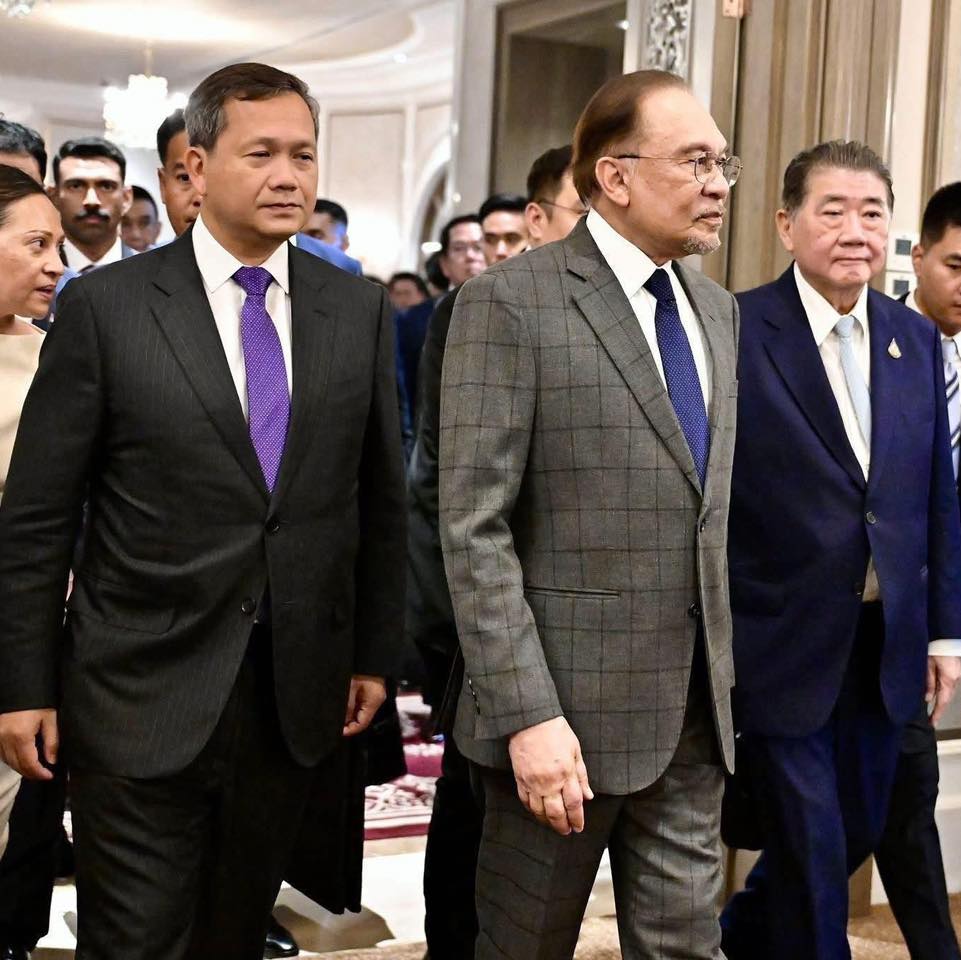
Separately, Mr. Phumtham Wichayachai briefly said that he thanked Malaysia, the United States and China for the results that day. He said the outcome of the meeting reflected Thailand’s determination for a peaceful resolution to the issue of protecting the sovereignty and lives of the Thai people.
Before the statements by the Cambodian Prime Minister and the Acting Prime Minister of Thailand, Anwar Ibrahim, the Prime Minister of Malaysia and the rotating chair of ASEAN, as well as the host, expressed a common position between ASEAN, the United States and China on the willingness to immediately implement a ceasefire and to restore peace.
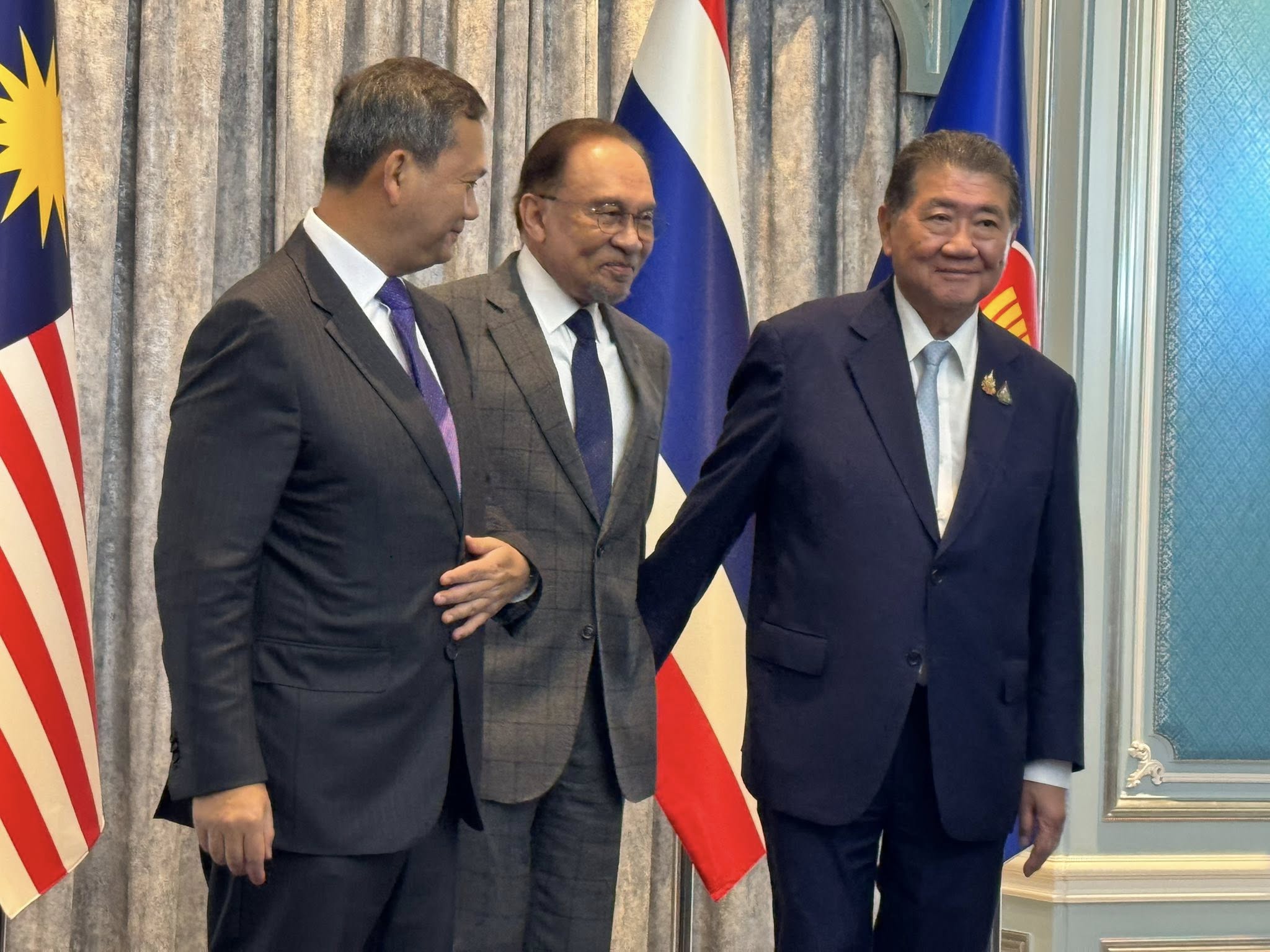
He clearly announced that Cambodia and Thailand had agreed to an immediate and unconditional ceasefire agreement starting at 24:00 (local time) on July 28, 2025. This is an important first step towards reducing tensions and restoring peace and security: both countries agree to convene an informal meeting of the regional commanders (military regions 1 and 2 on the Thai side and military regions 4 and 5 on the Cambodian side) at 7 am on 29 July 2025, followed by a meeting of the National Defense Attaché, led by the ASEAN Chairman, if both sides agree, and to organize a General Boundary Committee (GBC) meeting on 4 August 2025, hosted by Cambodia.
He made it clear that as the current ASEAN Chair, Malaysia is ready to facilitate an observation mission to verify and ensure the implementation of the ceasefire agreement. Malaysia will also consult with ASEAN member states to participate in the observation effort, which reflects the regional commitment to supporting peace on the ground.
He said that the two sides also agreed to continue direct communication between the Prime Minister, the Foreign Minister and the Defence Minister. The Foreign Ministers and Defence Ministers of Malaysia, Cambodia and Thailand were instructed to establish a detailed mechanism for the implementation, verification and reporting of the ceasefire. This mechanism will serve as a foundation for sustainable peace and accountability.
He said the meeting reaffirmed the joint resolve of Malaysia, Cambodia and Thailand to adhere to the principles of international law, peaceful coexistence and multilateral cooperation in seeking a just and lasting solution to the situation.
After the meeting and upon his return, the President also had a telephone conversation with President Trump, who shared that Trump congratulated the success of the immediate ceasefire talks between the Cambodian Prime Minister and the Thai Prime Minister. During the meeting, Trump considered this matter to be an important matter and that he had personally followed up on it. The President stated, “I reiterate my gratitude to His Excellency President Donald Trump for initiating and promoting the rapid ceasefire negotiations and for the United States’ policy of co-hosting the special meeting in Malaysia that day.”
The President added that Trump understood that for this agreement to be fully and sustainably implemented, there must be a mechanism to clearly monitor and supervise the implementation of the parties involved, which was also a point of consensus at the special meeting.
In this regard, the President agreed for the United States to participate in the process of monitoring the implementation of the ceasefire agreement and to continue to cooperate with the mechanism organized by Malaysia to monitor its success. He considered this work to be a particularly important task that he wanted to see a permanent peace between the two countries.
Overall, this is a huge diplomatic success for Cambodia. Cambodia has dragged Thailand into a multilateral mechanism, which currently includes up to five parties, namely Cambodia and Thailand, with the participation of Malaysia as the chair of ASEAN, the United States, and China.
According to the bilateral mechanism that Thailand has generally mentioned, Thailand may be easily swayed, but this Pentagon mechanism is an accountable and transparent mechanism for implementing the ceasefire agreement and agreements leading to an end to hostilities and a peaceful return to normalcy as desired by Cambodia.

